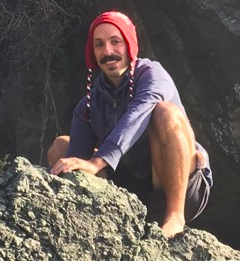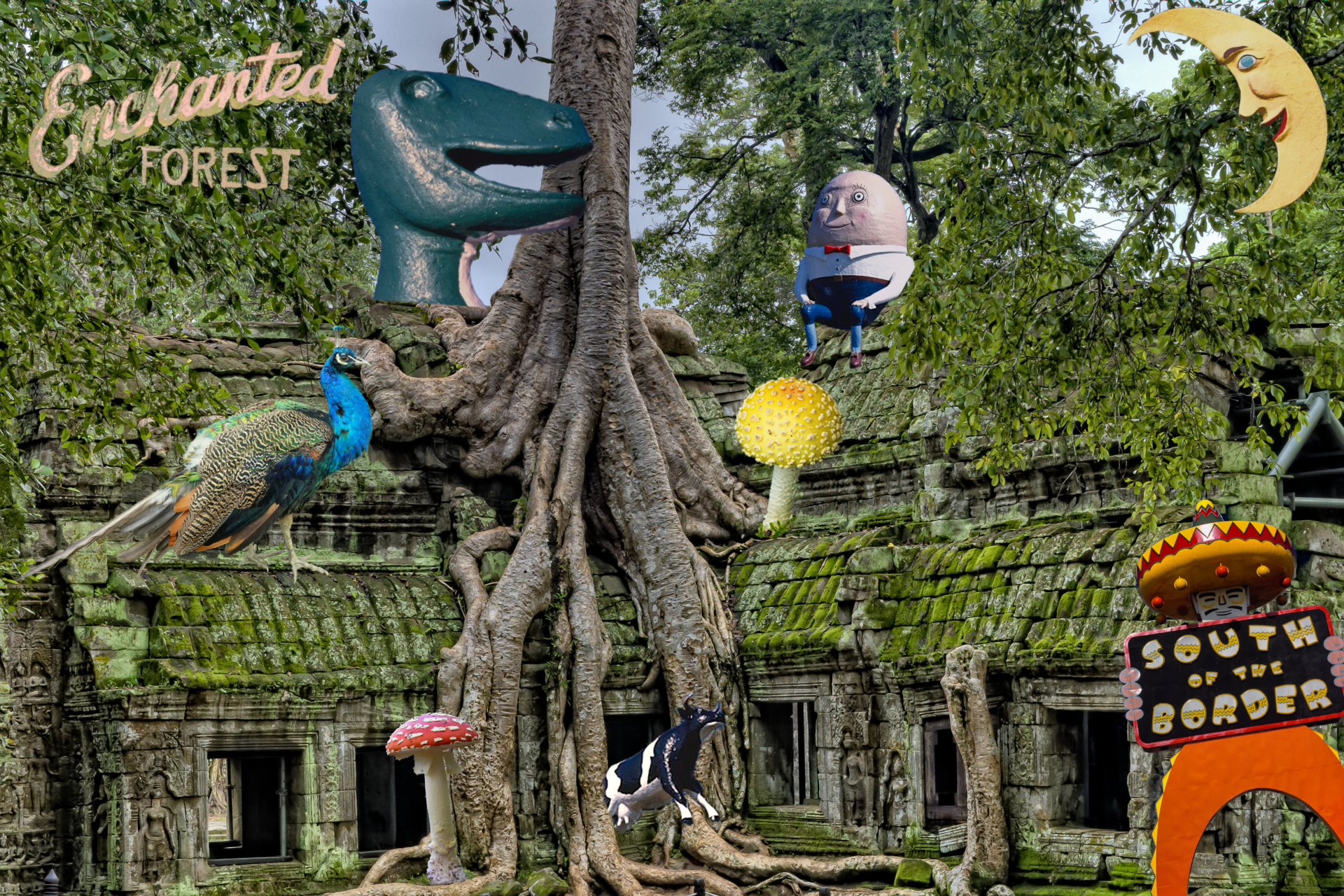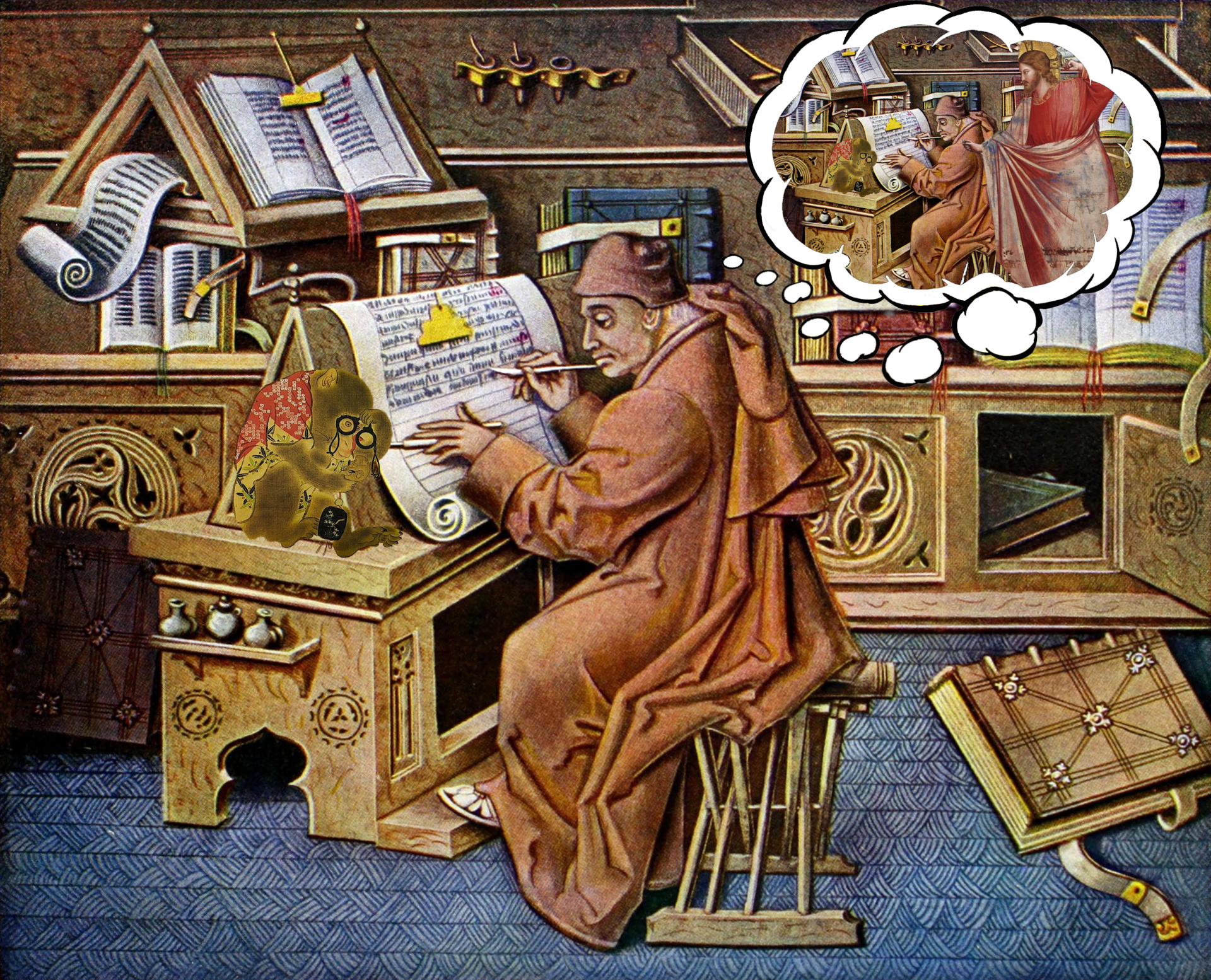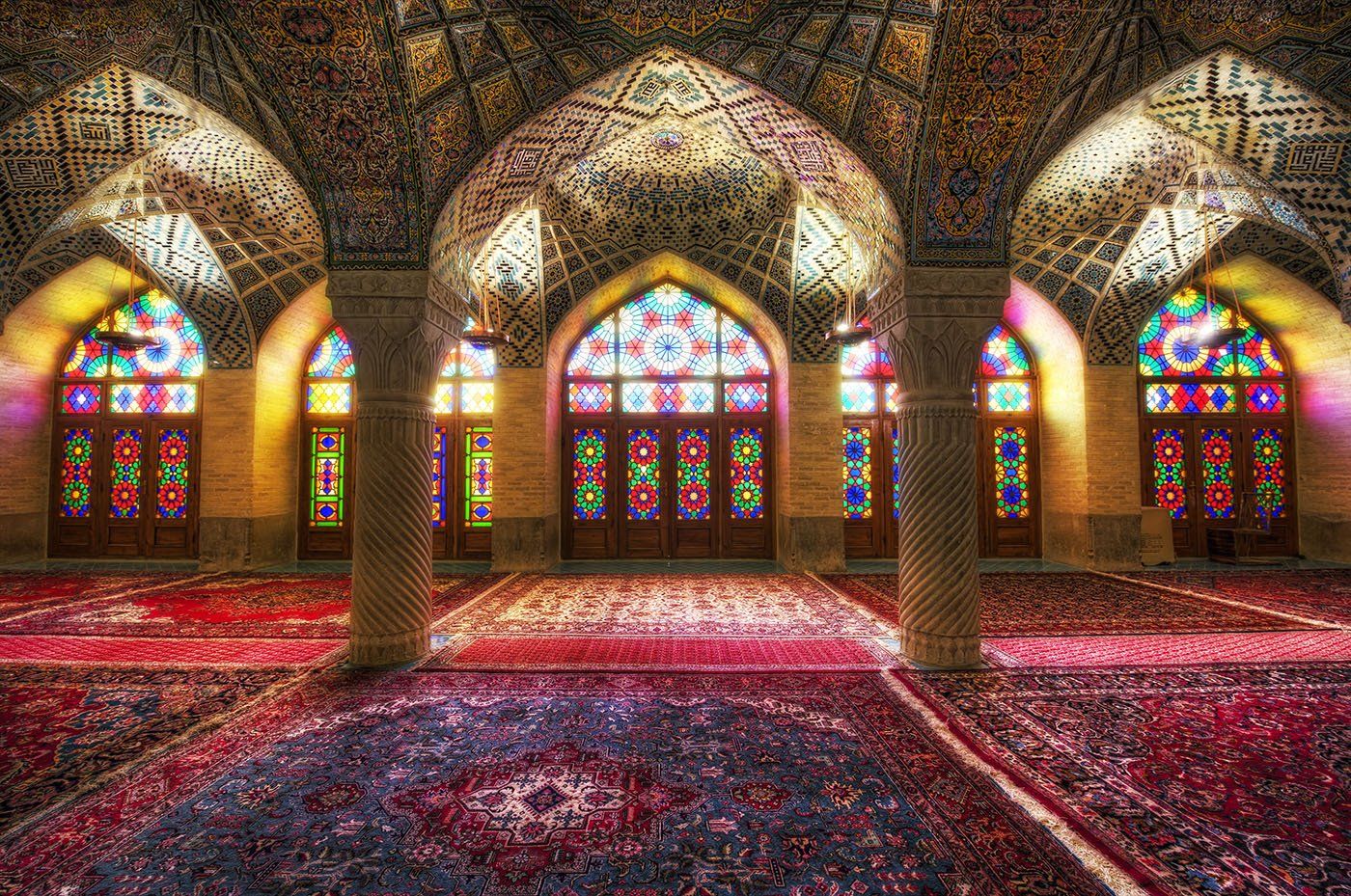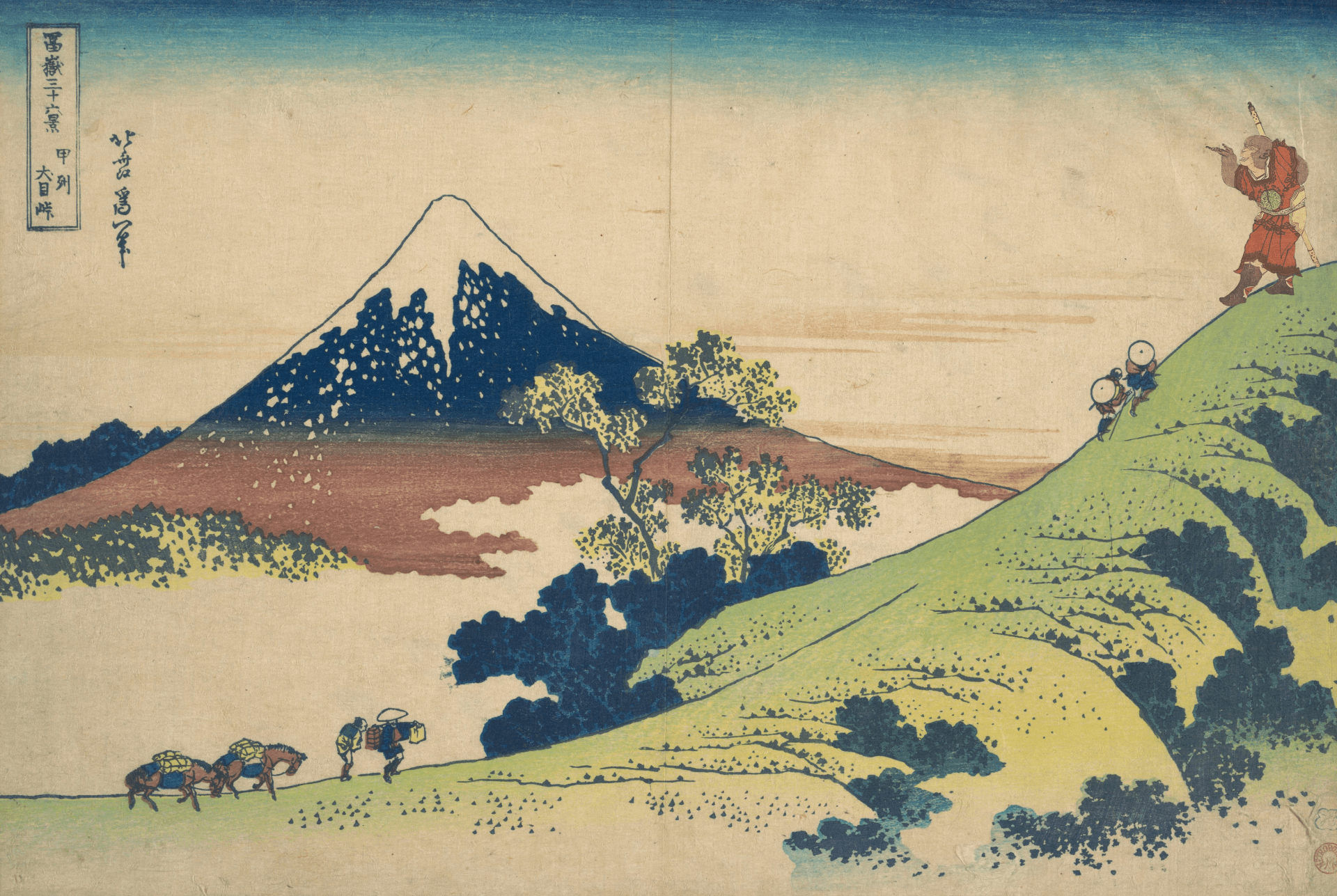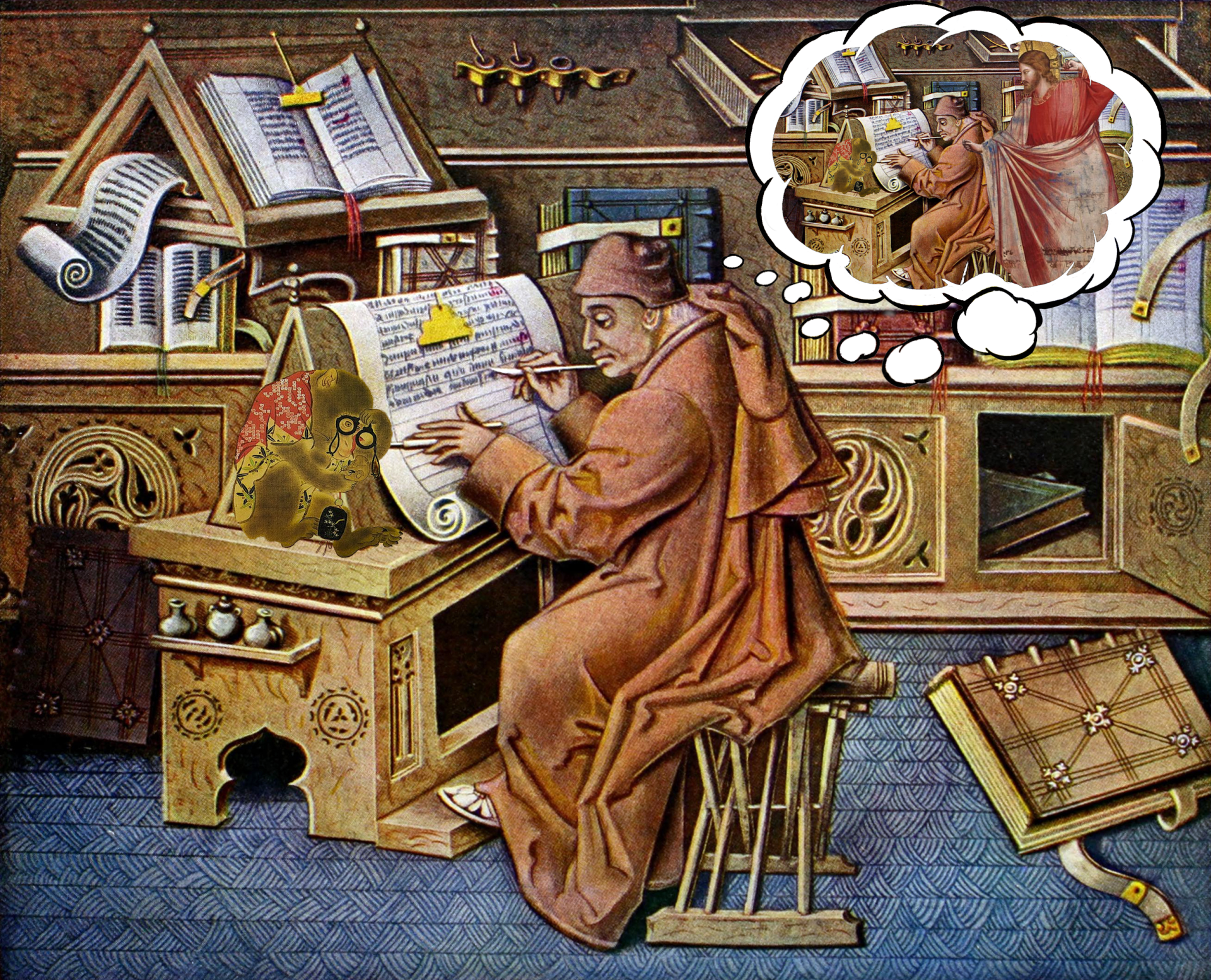
Exegesis
I'll leave this one here without saying much.
The audience for this may be limited... but that never stopped me from writing.
This may offer some useful context.
There is some Grown-Up Language in the writing. I trust you are a Grown-Up.
07 April 2022
Joyce-Gist Joindering; or,
Exegesis of an Exigent Excerpt
A cloud began to cover the sun slowly, wholly. Grey. Far.
No, not like that. A barren land, bare waste. Vulcanic lake, the dead sea: no fish, weedless, sunk deep in the earth. No wind could lift those waves, grey metal, poisonous foggy waters. Brimstone they called it raining down: the cities of the plain: Sodom, Gomorrah, Edom. All dead names. A dead sea in a dead land, grey and old. Old now. It bore the oldest, the first race. A bent hag crossed from Cassidy's, clutching a naggin bottle by the neck. The oldest people. Wandered far away over all the earth, captivity to captivity, multiplying, dying, being born everywhere. It lay there now. Now it could bear no more. Dead: an old woman's: the grey sunken cunt of the world.
Desolation.
Grey horror seared his flesh. Folding the page into his pocket he turned into Eccles street, hurrying homeward. Cold oils slid along his veins, chilling his blood: age crusting him with a salt cloak. Well, I am here now. Yes, I am here now. Morning mouth bad images. Got up wrong side of the bed. Must begin again those Sandow's exercises. On the hands down. Blotchy brown brick houses. Number eighty still unlet. Why is that? Valuation is only twentyeight. Towers, Battersby, North, MacArthur: parlour windows plastered with bills. Plasters on a sore eye. To smell the gentle smoke of tea, fume of the pan, sizzling butter. Be near her ample bedwarmed flesh. Yes, yes.
Though this method might be better used on Finnegan's Wake, fractal work all-enveloping, still we may safely say that, in selecting nearly any passage from anywhere in Ulysses and submitting it to analysis and association alike, we can elicit many meanings, many-leveled, which reflect the many themes of Joyce's design; this is a trial at that.
Above is an excerpt from Chapter IV, "Calypso," wherein we first meet Mr. Bloom; here he has made his first outing of the day, the little loop within the larger, leaving Molly his wife to come back to her. He has left her half-awake in bed, visiting butcher Dlugacz, the Polish Jew, to fetch a pig-kidney for his breakfast. While waiting in line, Mr. Bloom takes "a page up from the pile of cut sheets" on the counter, glancing over it then, and, just before thinking the passage above, having left the shop with tref tender gland apocket, gravely reading it later.
The paper is an advertisement for a Zionist colony, Agendath Netaim - "Planting Company." Its essence: buying Palestinian land back, for the Jews, from the Turkish empire, and planting amid new Jewish roots crops whose fruits donors to the cause would be sent yearly. Importantly, Mr. Bloom is also a Jew; also importantly, Mr. Bloom says, "Nothing doing. Still an idea behind it." He feels, but he thinks, and is here and ever a man of his own mind. But the flier sets him athinking, remembering earlier days with Molly, then the trials of his people; and now we come back to the start, little loop within the larger.
"A cloud began to cover the sun slowly, wholly. Grey. Far." "Calypso" is the first chapter of the second portion of Ulysses; the first three chapters correspond, in Joyce's earthy retelling, to the Odyssey's Telemachiad, with Stephen-Telemachos as the center, while the fourth begins the Odyssey-proper, turning back the clock, so to say, to the starting spot, with Bloom-Odysseus as the new center. Therefore, with this parallactic double-vision, we should expect, and are given, some of the same things and themes seen again and otherwise.
In Chapter I, Stephen, standing atop the tower, is witness to a cloud, the same which Mr. Bloom sees while walking: "A cloud began to cover the sun slowly, wholly, shadowing the bay in deeper green. It lay beneath him, a bowl of bitter waters" (I, 248). The moods of both boy and man are darkened by the same cloud, an explicit parallelism: both think about a great body of water (which, in Chapter I, is linked with images of the Mother), Bloom the Dead Sea near the Jewish homeland, Stephen the "bitter" Dublin Bay, near the Irish homeland; both are haunted by the remembrance of things past, specifically of death and Mother-images (Stephen his flesh-mother, living, dying, and dead, and Bloom the Jewish Ur-Mother, the Fertile Crescent made sterile, a "grey sunken cunt").
More to the passage here, the grey cloud turns Mr. Bloom's view of the whole colony- and planting-enterprise dark: the land is not as advertised, ablossom and abloom, heavy with fruit - it is barren, poisoned, and effete, an ashen corpse; this is not unlike Stephen's cloud-blackened fantasy of his ghoulish-grey mother.
But in this context of Jewish homelands and dead civilizations, Bloom's mind jumps to thoughts of Sodom, Gomorrah, and Edom, Biblical cities which, once lively, were cursed and leveled: not the chosen but the hated of God. The "bent hag" passing Bloom while coming from the wine and spirits store, "clutching a naggin bottle by the neck," is, first, another symbol of the life-giving mother old and dying, made pitiful, and also a parallel to the milkwoman of Chapter I, herself aged and sterile ("Old shrunken paps"); the one a symbol of the Jews and their land, the other of the Irish and their land, an implicit parallelism.
Bloom's thoughts then - again influenced by Dlugacz and the flier, but also by an associative leap from "old hag" to "oldest people" - turn to the Jewish people themselves, scattered in wide exile, moving from "captivity to captivity," that is, from Egypt to Assyria to Babylon, and so on through the ages, even to the present, with the Turkish empery over Palestine; this is a parallel to the Irish and their state, a nation of Jews long captive to the British empire, Egypt of its day. Joyce, as always, likes to draw parallels between the plight of the Irish and other historically colonized and supplanted peoples, especially Jews, and between the oppressor England and other great oppressors.
It is also well to note, and only note, that the line "multiplying, dying, being born everywhere" is also an echo of an oft- and loud-sounded theme in Ulysses, of birth, death, and rebirth, the endless wheels of life.
But thinking those heavy things, Mr. Bloom is seared by "grey horror," "cold oils" slide through his chilled veins - coldness and greyness, darkness and age being images evoked throughout this scene, a scene foreshadowed by the peak of Stephen's horror in Chapter I, (273-9) - and then shakes it off, an affirmation of life and the present, a literal yea-saying: "Well, I am here now. Yes, I am here now." The darkness of thought he then attributes to "morning mouth," getting up on the wrong side of the bed, and a lapsed exercise regimen; he also engages in a measure of self-suppression and mental distraction (a honed craft of his), thinking about unlet houses and their values, looking at real-estate agents' advertisements.
And after all that, in an evocation of the Odyssey ("But such desire is in him/merely to see the hearthsmoke leaping upward/from his own island/that he longs to die"), Mr. Bloom thinks of Molly's warmth and of the smells of cooking food, a remedy to thoughts of death. Notably, the next line, here omitted, mentions the return of "quick warm sunlight." Also notable is that, though Mr. Bloom thinks warmly of returning to his wife, Odysseus-like to his Penelope, Chapter IV is called "Calypso"; Molly, cloying goddess and concealer, is also his captor in a sense (though how, we learn only at whiles, and often by inference).
Taking the language of the passage, we see much of Joyce's standard craft - alliteration and consonance, harmony of vowel and rhythm, as sweet to the heart and the ear as honey to the tongue: "A cloud began to cover the sun slowly, wholly"; "crossed from Cassidy's, clutching a naggin bottle by the neck"; "sunken cunt"; "cold oils slid along his veins, chilling his blood"; "hurrying homeward"; "blotchy brown brick houses"; "parlour windows plastered with bills."
And last - thrown confetti-like, with caudal pomp, colorful slips of thought - Joyce, to whom nothing human is alien, wove all words, all body-bits and doings into this work; so we read "cunt" in this passage, and remember that, since most chapters feature or symbolize an organ, the kidney in Mr. Bloom's pocket has a broader meaning than breakfast merely (1).
Altogether, while not the densest of passages in Ulysses, nor the deepest, still, this substream of Bloom's flowing thought reminds us: "Just as the sea tastes of salt whether the sea is tasted from the north or from the east or from the west, the sea always tastes of salt."
---------------
- This didn't come up in the class discussion, but in Chinese (maybe also other Eastern) traditional medicine, kidney energy is tied to sex (sometimes called the higher sex organs, if I remember rightly; they generate sex-energy), while its negative aspect is fear and its positive aspect will-power. Not irrelevant to this chapter, is it?
Those who only dip their toes will never touch the depths.
Champion Toe-Dipper
Signs and wonders!
Well, wouldja you look at that -- you actually emailed me. I'm glad you figured my website out.
If you would, give me a little time to reply, ok?
I'll do my best to reply quickly. If you don't hear back within a couple days, you may want to write again.
Take care,
Jian
Oh, boy.
Gremlin in the machine. I don't think your message went through.
Why not take a constitutional and try again a bit after, huh?
Jian
